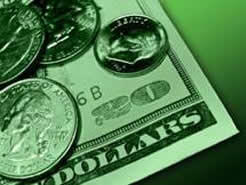46% Say Taxpayer Money May Be Spent Wisely
President Obama on Tuesday night tapped Vice President Joseph Biden to lead “a tough, unprecedented oversight effort” to make sure the public’s money is not wasted in any of the administration’s multi-billion dollar reform and economic plans.

